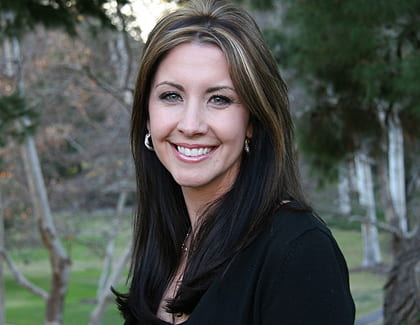Taking back the campus
CARE director Mandy Mount leads effort to prevent sexual assault – and help survivors

One in four. That’s the number of female students nationwide who will be victims of sexual assault or attempted assault during their college careers. It’s a disturbing statistic that Mandy Mount, director of Campus Assault Resources and Education (CARE), seeks to change.
“Our mission is to eradicate sexual violence on campus and provide a safe environment for students,” she says.
Mount received her doctorate in counseling psychology from the University of Maryland and was appointed CARE director two years ago. Some consider hers the hardest job on campus, but she loves it.
“Trauma does come through this office, but the work is very hope-focused,” says Mount, who counsels survivors of sexual assault. “It’s wonderful to help them find their voice, and watch them eventually reach out to others who’ve been hurt.”
Still, she would rather stop assaults from happening in the first place. To that end, CARE offers programs for men and women about dating, intimacy and sexual assault.
“We give workshops that help students identify healthy relationships and deal with the issue of consent,” Mount says. She trains students in the Right to Know peer program to provide these educational programs and support victims of sexual violence.
CARE will share information on healthy dating at Valentine’s booths set up on Ring Mall Wednesday, Feb. 14, and co-sponsor “Take Back the Night” April 18 – a candlelight vigil and march to raise awareness of sexual violence. “Take Back the Night” coincides with CARE’s Clothesline and Red Flag projects April 16-18 – an exhibit of T-shirts by survivors of violence and a display near the Administration building of 3,000 small red flags, symbolizing the one-in-four women at UCI estimated to become victims of assault.
Mount seeks to expand CARE’s services. This month, she’s implementing a three-part workgroup for students leaving abusive relationships. She’s already formed a Sexual Assault Support Group on campus, and a UCI chapter of One in Four, a national men’s program that teaches how to support assault survivors.
CARE recently launched a Web site with the UCI Police Department that allows users to access information about sexual assault and ask questions anonymously.
“Some are afraid to ask questions, or they’re uncomfortable with in-person counseling,” Mount says. “If they ever need the information, I don’t want them to wonder where to get it.”